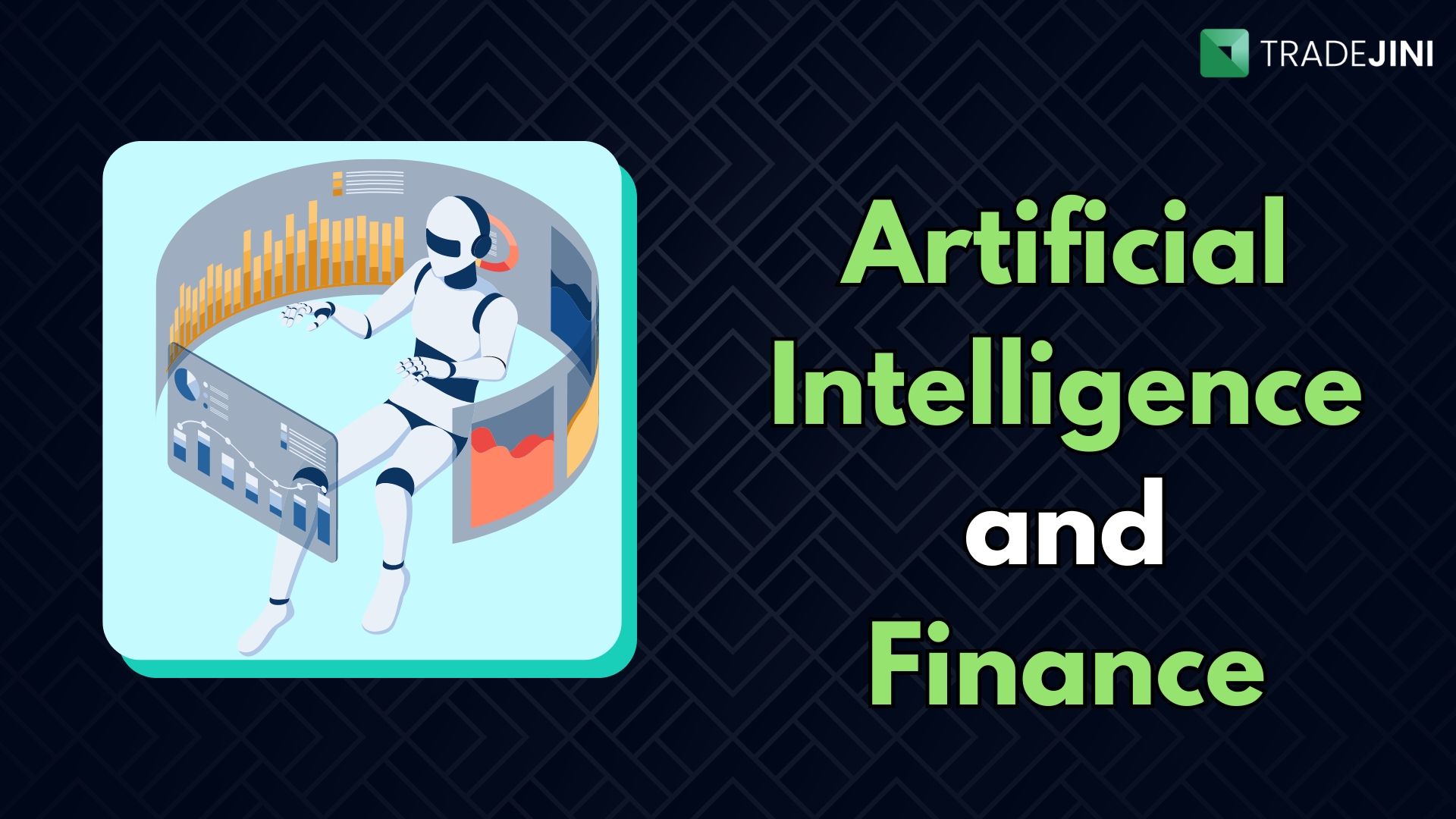We all have seen superstar Rajnikanth's movie Robot and for most of us, this movie flashes in our minds whenever we hear the word Artificial Intelligence, but who actually thought back then that the world would actually become the way it is portrayed there, even if we are not close to that, our world is on its way to becoming a place like that very soon.
Artificial Intelligence (AI) is a branch of computer science focused on developing intelligent machines capable of performing tasks akin to human activities. These machines can self-learn, organize, and analyze data to make informed predictions. Consequently, AI has become a crucial component in the banking, financial services, and insurance sectors, transforming the delivery of products and services.
The world in the past 5 years has changed massively, especially the way it has been working. AI has made every task possible in the most efficient manner possible. And this has also come into finance, which involves utilizing technologies such as machine learning that replicate human intelligence and decision-making processes. This enhances the ability of financial institutions to analyze data, manage assets, make investment decisions, and safeguard funds.
Then, how does AI fit into the financial sector?
AI has significantly impacted various aspects of finance, particularly lending operations, insurance, investment strategies, and its synergy with the Internet of Things (IoT). In lending, AI models enhance the accuracy of creditworthiness assessments, streamline loan approval processes, and mitigate risks. Additionally, real-time data analysis helps detect fraudulent activities, safeguarding financial institutions and customers.
In the insurance sector, AI improves risk assessment by analyzing historical data and customer behavior, enabling personalized insurance policies that boost customer satisfaction and loyalty. AI-powered chatbots and virtual assistants revolutionize customer service by providing prompt, personalized assistance.
In investment and portfolio management, AI employs predictive models and algorithmic trading to identify lucrative opportunities, optimize portfolio performance, and mitigate risks. AI-driven sales forecasting tools anticipate market trends, optimize inventory management, and enhance operational efficiency.
The integration of AI and IoT amplifies data-driven decision-making in finance. IoT devices collect extensive data to offer insights into consumer behavior, market trends, and operational efficiency. For example, IoT sensors in retail stores track customer movements, optimize product placement, and personalize marketing campaigns. In banking, IoT-enabled ATMs and POS terminals facilitate real-time transaction monitoring and fraud detection.
What are the challenges we can face using AI?
Despite the many benefits of AI in finance, several challenges need attention. Ethical use of AI, especially in credit scoring and loan approval, can lead to biased and discriminatory outcomes. AI models are complex and can be targeted by malicious attacks that manipulate data to produce incorrect results. Data privacy and security are also concerns, as AI requires collecting and storing sensitive customer information.
Other challenges include ensuring data quality, meeting regulatory requirements, managing cybersecurity risks, maintaining ethical standards, making models understandable, dealing with resource limitations, integrating with older systems, ensuring algorithmic fairness, mitigating operational risks, and gaining customer trust. Overcoming these challenges requires collaboration between policymakers, regulators, and industry players to create strong frameworks for responsible AI use in finance. This will help financial institutions fully leverage AI for innovation, efficiency, and better customer service.
Is AI the future?
The integration of AI in the Banking, Financial Services, and Insurance sector has revolutionized how products and services are delivered, making operations more efficient and data-driven. While AI offers numerous benefits, including enhanced risk assessment, improved customer service, and optimized investment strategies, it also presents significant challenges such as ethical concerns, data security, and regulatory compliance. Addressing these issues requires a collaborative effort among industry stakeholders, policymakers, and regulators to establish robust frameworks for responsible AI use.
By doing so, financial institutions can harness the potential of AI, driving innovation and providing superior customer experiences while ensuring fairness, transparency, and security. The rapid advancements in AI and its growing application in finance signal a transformative future, poised to reshape the industry in profound and lasting ways.



